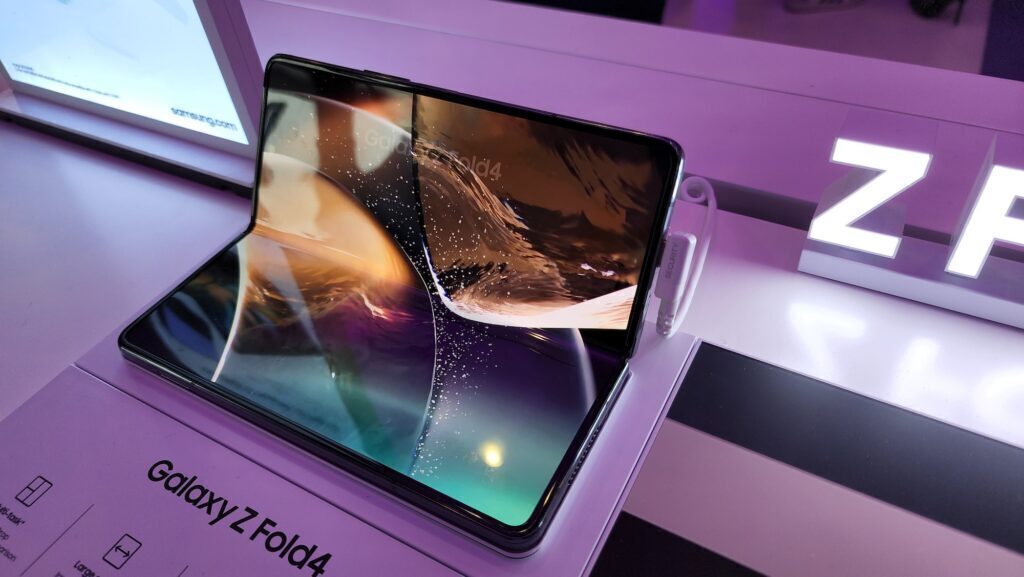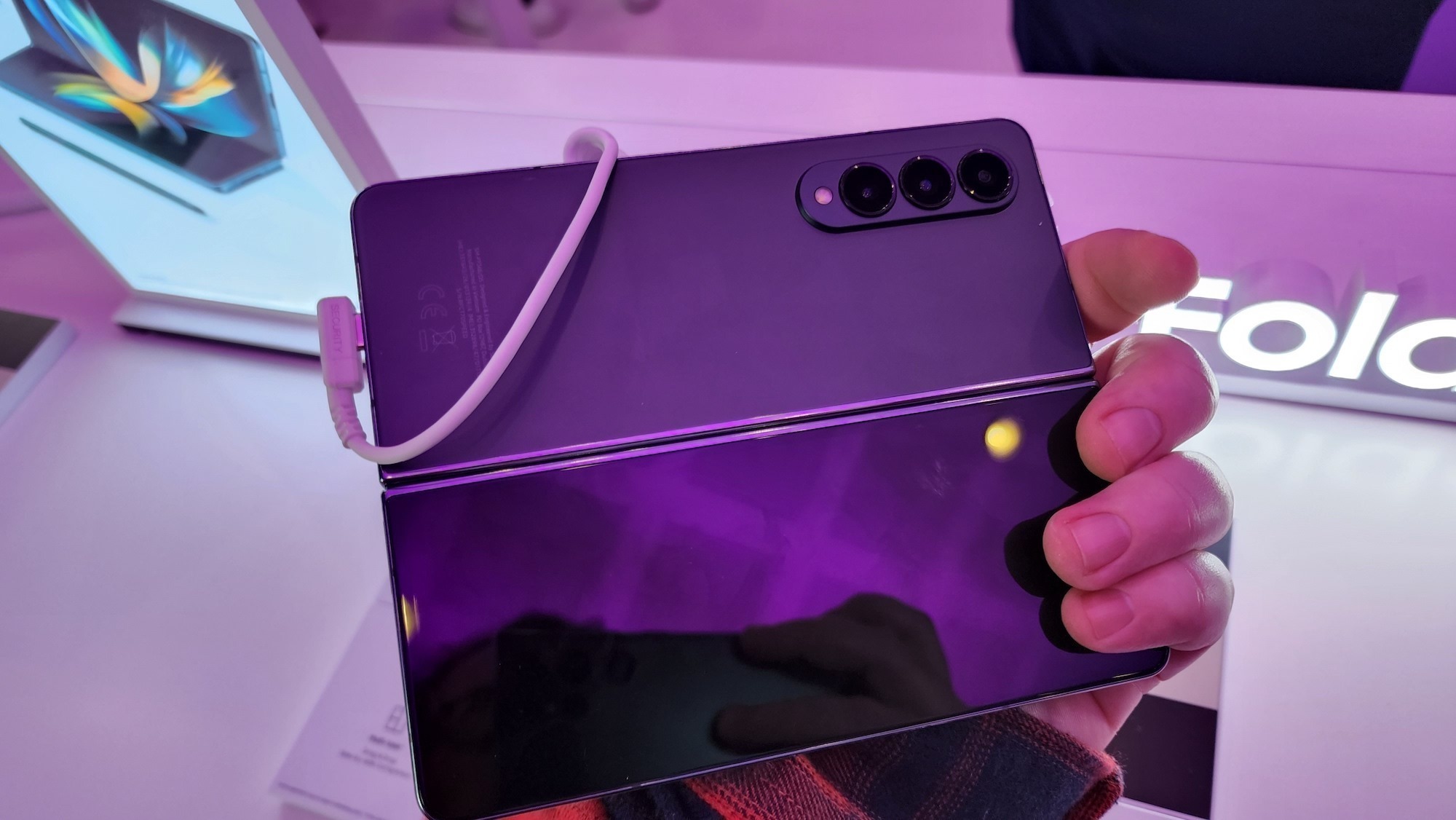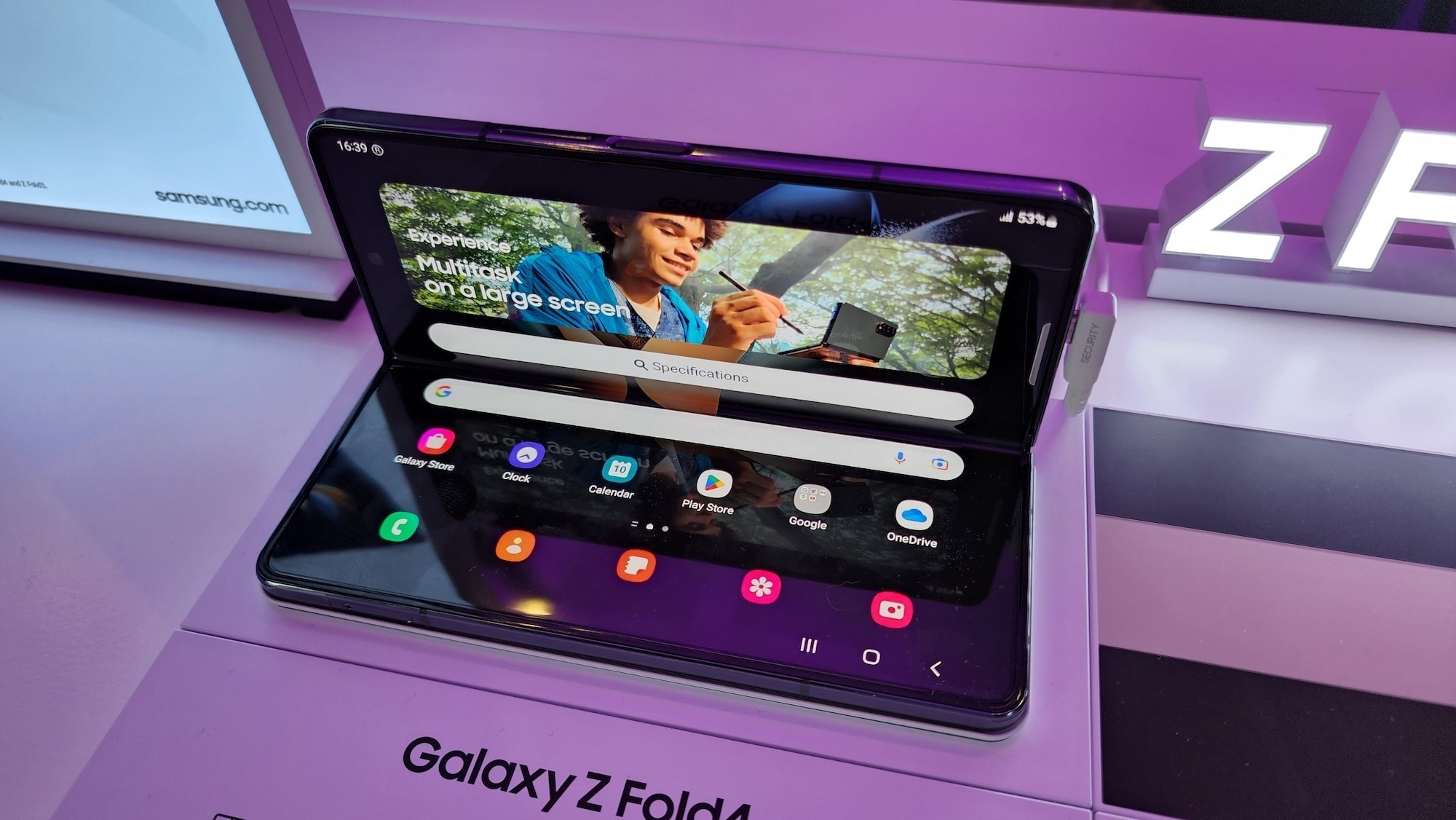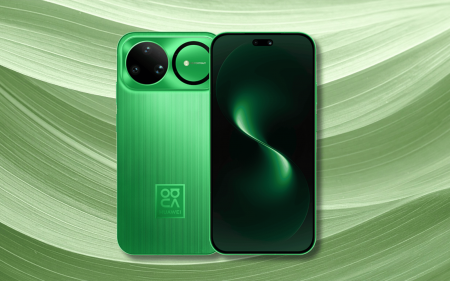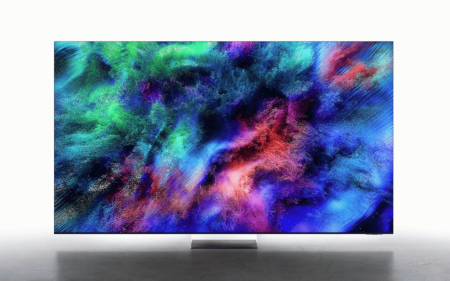Samsung’s Galaxy Flip 4 doesn’t seem to have changed much but the same can’t be said for the Galaxy Fold 4. Unless you’re looking at it from the outside, and not under a microscope, at any rate. Which, yes, means that the design is very similar to the Galaxy Fold 3. But it’s below the surface where actual changes have been made.
The company’s leaned heavily on its alterations to the Fold 4’s body. Invisible alterations, for the most part, but they still count. But there are changes throughout that make this the more attractive option for a serious tech-head. That R38,000 starting price is still going to sting a little.
Slim, but not shady
If you were to place the Galaxy Fold 4 and Fold 3 side by side, we’d battle to tell them apart using the naked eye. Even handling them might not provide enough data points to separate them. But if you had a scale, you could definitely manage the task. Samsung has shaved 8 grams of weight from the Fold 3, landing at 263 grams for its successor.
This was achieved by some serious tweakery in how the hinge works. Samsung has dispensed with gears in favour of some engineering sorcery. A metal plate behind the flexible display was also replaced with a reinforced fibre layer for added toughness. But all of these are hard to detect unless you happen to habitually carry around a scale or a scalpel. Ours was in our other pants, unfortunately.
But some rough handling, under the watchful eye of nervous Samsung attendants, suggests that this phone can take a bit of abuse. That’s certainly true when it’s folded, which is how it’ll spend most of its time. There’s no flex in the frame, the outer display is commendably strong, and even the folding screen should shrug off some rough treatment. Samsung’s new sponge backing seems capable, on short acquaintance.
Similarities abound
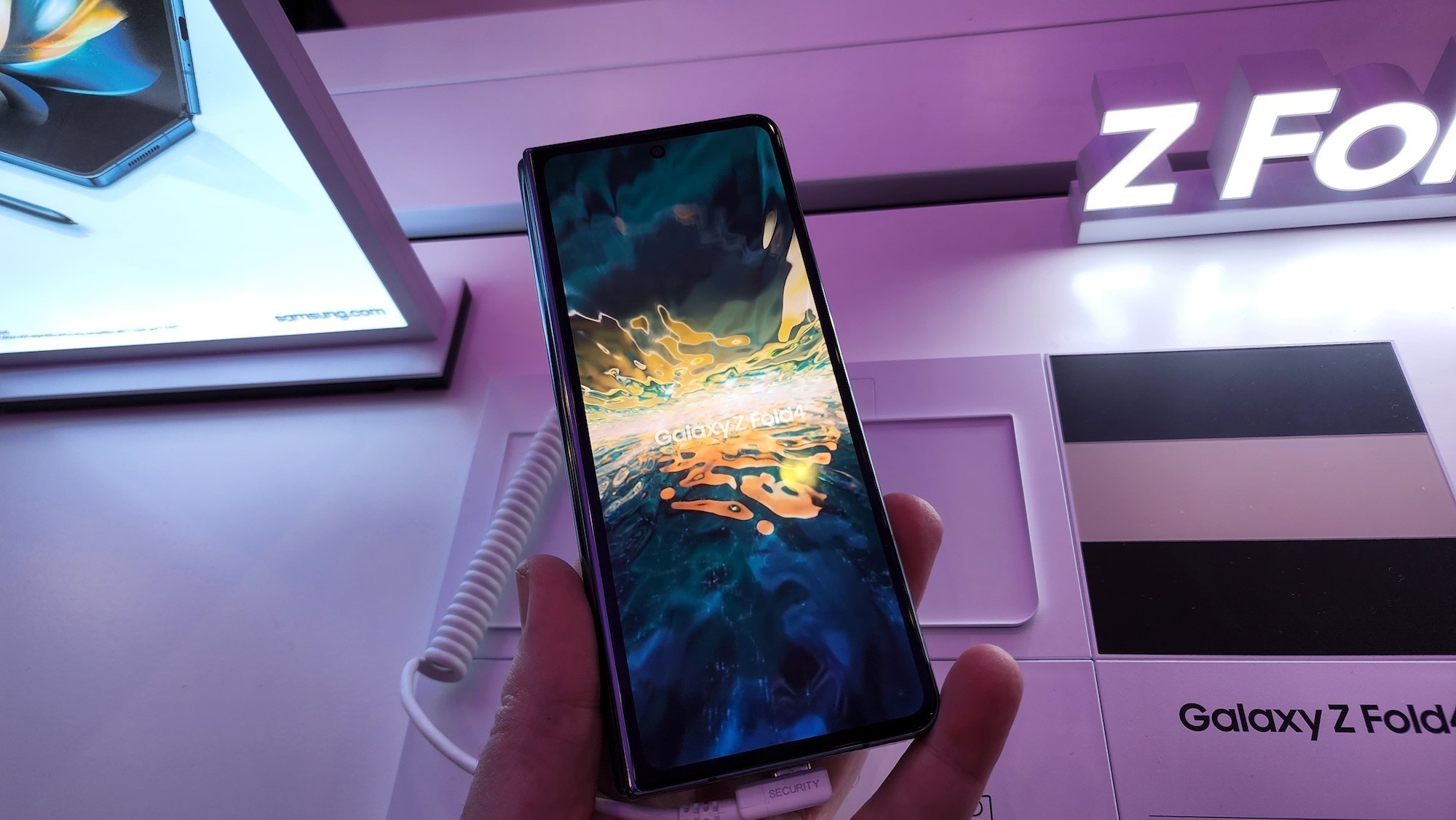 The Galaxy Fold 4, like the Flip 4, has a substantial amount in common with its predecessor. It’s not just the design that’s remained constant. The 7.6in display is almost entirely identical. Only a slight resolution sets the screens apart. The same goes for the outer display — it’s still 6.2in, and a minor resolution change is the only differentiator.
The Galaxy Fold 4, like the Flip 4, has a substantial amount in common with its predecessor. It’s not just the design that’s remained constant. The 7.6in display is almost entirely identical. Only a slight resolution sets the screens apart. The same goes for the outer display — it’s still 6.2in, and a minor resolution change is the only differentiator.
Other constants include the under-display camera, which has apparently been tweaked but looks unchanged on paper. The 10MP cover camera is also the same to 2021’s snapper. The 4,400mAh battery and the various charging functions (25W wired, 15W wireless, 4.5W reverse) are similarly unchanged. Audio skills make the jump from the last phone, and there’s still 12GB of RAM available across the board.
Constructive criticism
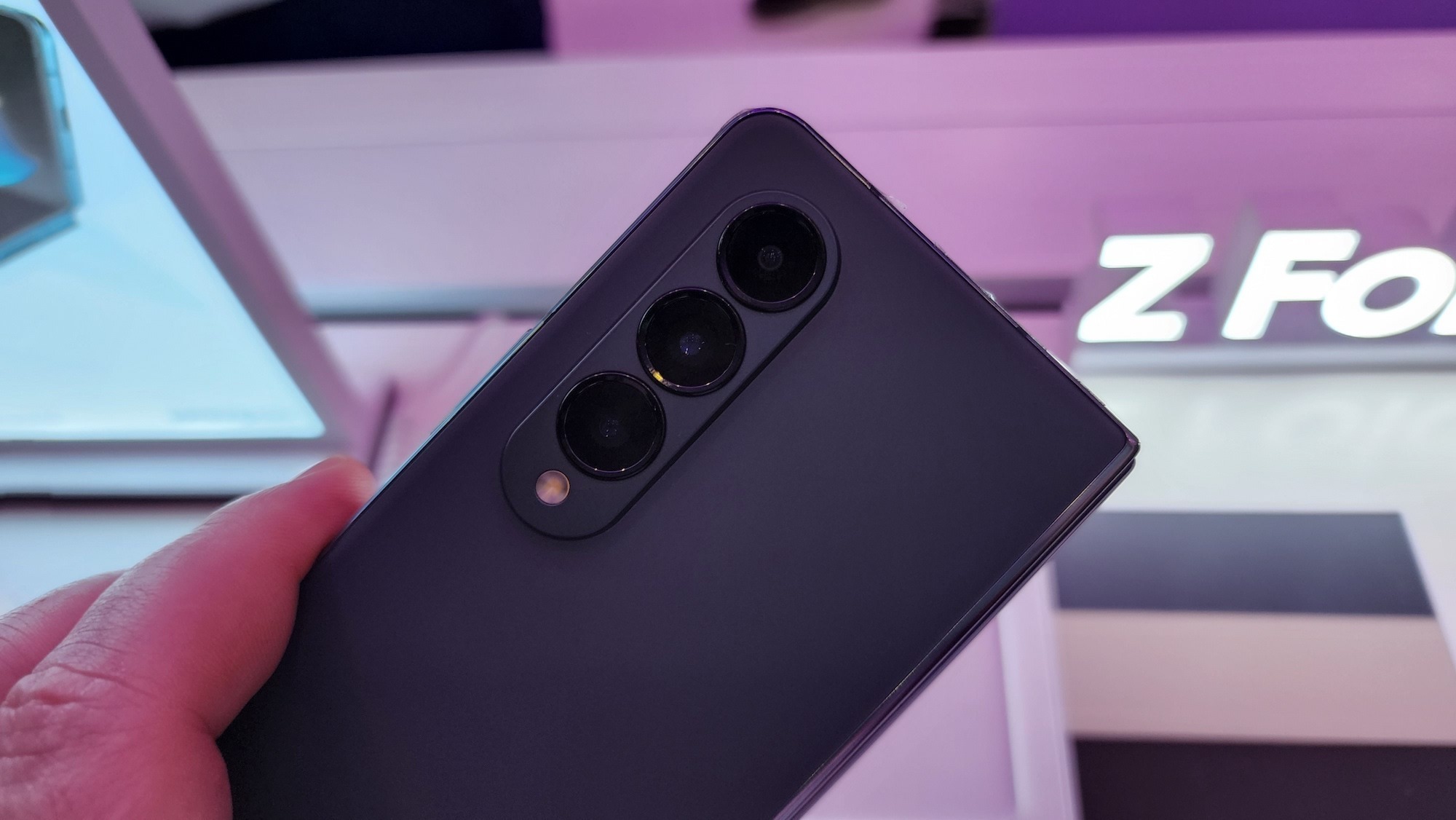 There are some proper changes too, most of which address criticisms of the previous generation. And by ‘criticisms’ we mean the camera. Instead of a trio of 12MP sensors, Samsung’s chucked in a new 50MP main, a 10MP telephoto, and a 12MP ultrawide. Low-light performance should be a little improved — Samsung reckons the Fold 4 performs closer to the Galaxy S-series of phones. We could see, in the vaguely purple light of the venue, an improvement in detail but we’ll reserve judgment until we’ve had enough time to get properly judgey.
There are some proper changes too, most of which address criticisms of the previous generation. And by ‘criticisms’ we mean the camera. Instead of a trio of 12MP sensors, Samsung’s chucked in a new 50MP main, a 10MP telephoto, and a 12MP ultrawide. Low-light performance should be a little improved — Samsung reckons the Fold 4 performs closer to the Galaxy S-series of phones. We could see, in the vaguely purple light of the venue, an improvement in detail but we’ll reserve judgment until we’ve had enough time to get properly judgey.
Otherwise, the processor upgrade — the Snapdragon 8+ Gen 1 — should have the phone speeding along. These, along with the bodywork alterations mentioned above, are the major physical differences. Samsung’s laying a lot of money on the user experience this time around. More of the biggest apps will feature unique functions when used on its folding devices, thanks to several partnerships Samsung punted during the launch. If you’re not sick of Reels, you’ll find that it’s a different experience on the Fold 4. Ditto YouTube, Microsoft’s Office apps, Spotify, and a few others.
Samsung Galaxy Fold 4 initial verdict
This is Samsung’s priciest smartphone, and it’s also had the most attention lavished on it. This is strange because fewer people will opt for it over the Flip 4. Still, it’s a technology showcase for the company. It’ll definitely outperform the Galaxy Fold 3, but will it justify spending R38,000 on one? That’s a question we’ll only answer during a full review. That day is coming soon, so keep an eye open. For now, this handset has the greatest potential to stand out from last year’s folding devices. If only the price was a little saner — but we reckon we’ll be saying that for at least a few more years.

